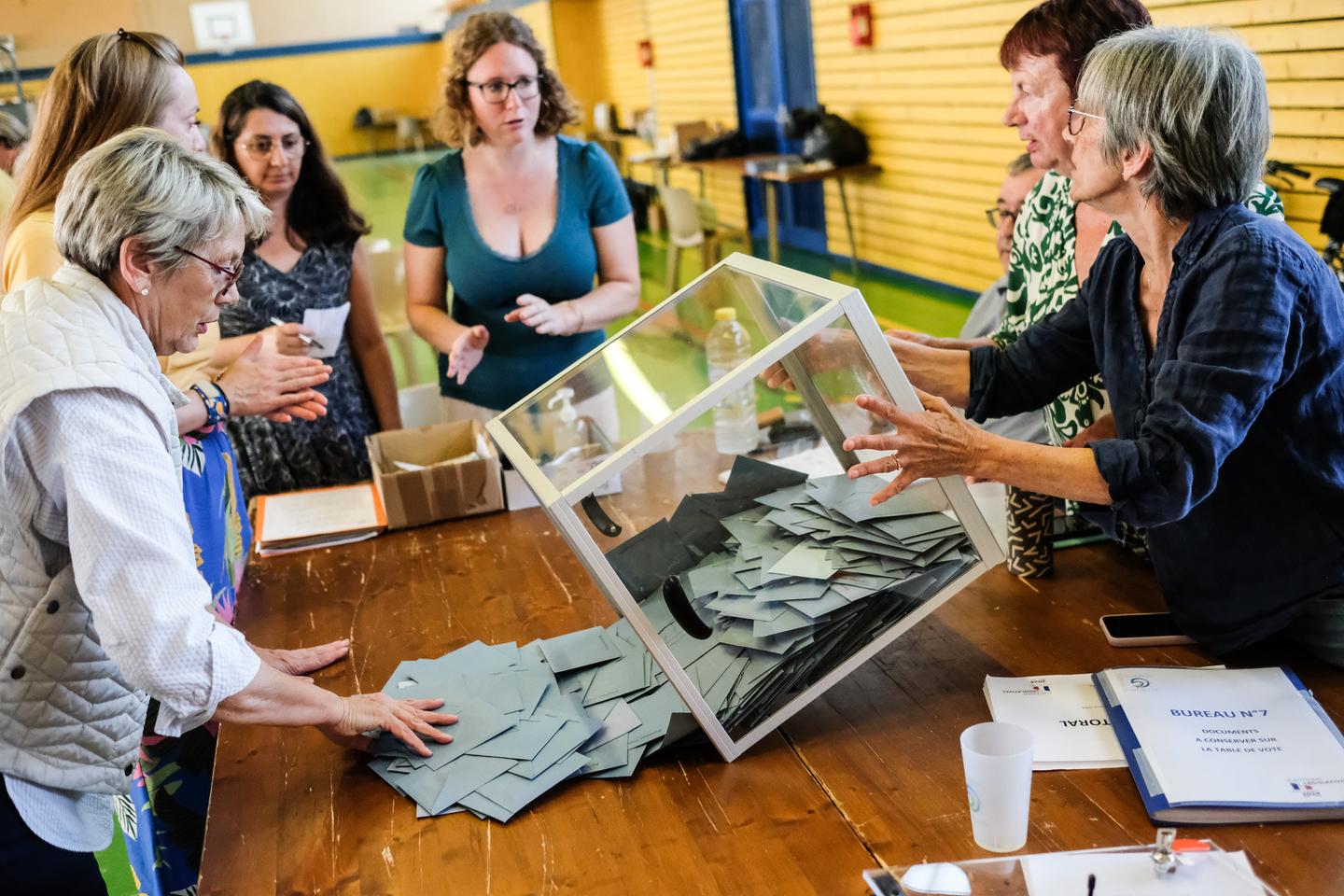


The unprecedented breakthrough of the Rassemblement National (RN) and its allies in the first round of France's snap elections was obstructed by the "republican front" set up by other parties to unite against the far right in as many districts as possible. On Sunday, July 7, estimated results of the second round placed the left-wing Nouveau Front Populaire (NFP) alliance in the lead with 172 to 192 seats, ahead of President Emmanuel Macron's coalition Ensemble (150 to 170 seats) and the RN and its allies (132 to 152 seats), according to initial estimates from the Ipsos Talan institute for France Télévisions, Radio France, France 24/RFI and LCP-Assemblée Nationale.
"Our people have clearly rejected the worst-case scenario. Tonight, the RN is far from having an absolute majority," said Jean-Luc Mélenchon, the leader of one of the NFP's main components, La France Insoumise (LFI, radical left). "No subterfuge, arrangement or combination would be acceptable," he said, and added he would refuse to "enter negotiations" with Macron's coalition. Macron, meanwhile, called for "caution," because the results do not answer the question of "who will govern?"
For their part, the members of right-wing Les Républicains (LR) who did not follow their contested president, Eric Ciotti, into an alliance with the RN, and other right-wing independents were projected to win between 57 and 67 seats in the elections called by Macron on June 9. The left-wing independents outside of the NFP were expected to win between 13 and 16 seats, and independent centrists between 6 and 8 seats.
The NFP owes its result to its unity, built the day after the dissolution of the Assemblée Nationale, and the common goal of blocking the far right. The alliance of four left-wing parties (LFI, Socialists, Greens, Communists) will win more seats than in the last legislature, when it had 151.
The balance of power on the left is significantly different from that of the previous left-wing coalition, the NUPES, formed in 2022. The LFI group looked set to obtain between 68 and 74 seats, more or less the same number as under the previous legislature. The Socialists were projected to win between 63 and 69 seats, more than doubling their group's size from 30, and putting them on an equal footing with LFI. The Greens were projected to obtain between 32 and 36 seats, gaining around 10 seats (23 previously). The Communists managed to save 10 to 12 seats.
While the far right made significant gains compared with June 2022, when the RN group won 89 seats, Marine Le Pen and Jordan Bardella's party failed to win a relative majority, let alone an outright one, which would require reaching the threshold of 289 seats out of 577. The RN from tactical withdrawals after the second round, with 218 candidates from the left and the presidential coalition dropping out in favor of a better-placed candidate to beat the RN.
You have 35.08% of this article left to read. The rest is for subscribers only.
